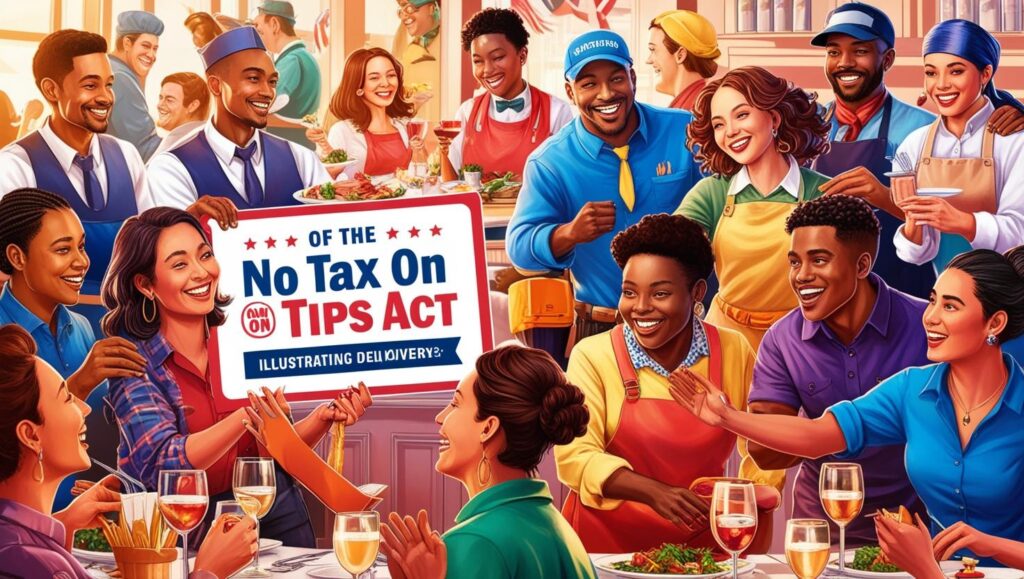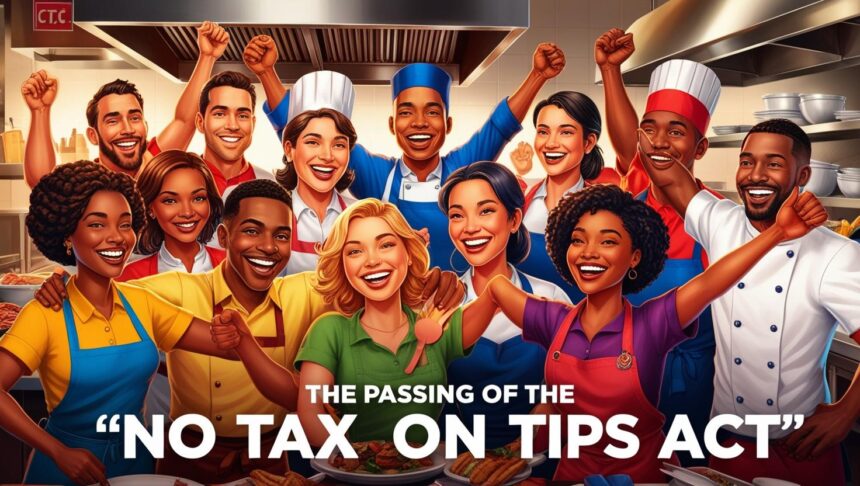The U.S. Senate just passed the “No Tax on Tips Act.” If you work in the service industry, this bill could impact your paycheck. It changes how the IRS treats tips.
What Is the No Tax on Tips Act?
This bill lets some workers keep more of their tips. Right now, tips count as income. That means workers pay federal tax on them. The No Tax on Tips Act aims to change that.

The bill lets workers deduct up to $25,000 in tips from their federal income. The goal is simple—put more money in workers’ pockets.
Who Qualifies?
Not everyone can use this tax break. You must:
- Earn less than $160,000 a year.
- Work in a job where tips are normal, like in restaurants or salons.
- Have earned your tips legally (cash, card, or check).
If you fit these rules, you can report tips—but not pay income tax on the first $25,000.
Which Jobs Are Covered?
The No Tax on Tips Act covers many service jobs, including:
- Servers and bartenders
- Hairdressers and nail techs
- Massage therapists
- Spa and beauty workers
If you get regular tips in your job, this bill might help you.
What About Employers?
Employers also get something. The act expands tax credits for businesses in beauty and spa services. This covers payroll tax on tips. It’s meant to help small businesses and encourage honest tip reporting.
Why Was This Bill Introduced?
Supporters say the tax code is unfair to tipped workers. Many earn low base wages and depend on tips. Taxing those tips can feel like a penalty.
This bill was introduced by Senator Ted Cruz. He says it supports hardworking people. Other lawmakers from both parties also backed it. The Senate passed it without a single no vote.
What Are the Pros?
- Workers keep more of what they earn.
- Less tax paperwork for low-income workers.
- Could help boost morale in service jobs.
A server who gets $20,000 in tips could save hundreds or thousands each year.
What Are the Cons?
Critics raise some concerns:
- Many tipped workers already pay little or no tax.
- It may let high earners dodge taxes by calling income “tips.”
- It could take away pressure to raise wages.
- The government might lose billions in tax money.
Some say it won’t help as much as people think. Others worry it helps businesses more than workers.
Will This Become Law?
Right now, the No Tax on Tips Act has only passed the Senate. The House of Representatives must still vote. If they pass it, the president will decide whether to sign it into law.
If it becomes law, the change could start in 2025. That means workers would see the benefit when they file taxes in 2026.
What Should You Do Now?
If you get tips at work, keep track of them. Save records. If the No Tax on Tips Act becomes law, you’ll want clear records to claim your deduction.
Talk to a tax advisor if you’re not sure how this may affect you.
Final Thoughts
The No Tax on Tips Act could help millions of workers. But it still needs final approval. Watch the news. Stay informed.
If you’re in a tipped job, this may be one of the biggest tax changes in years.





